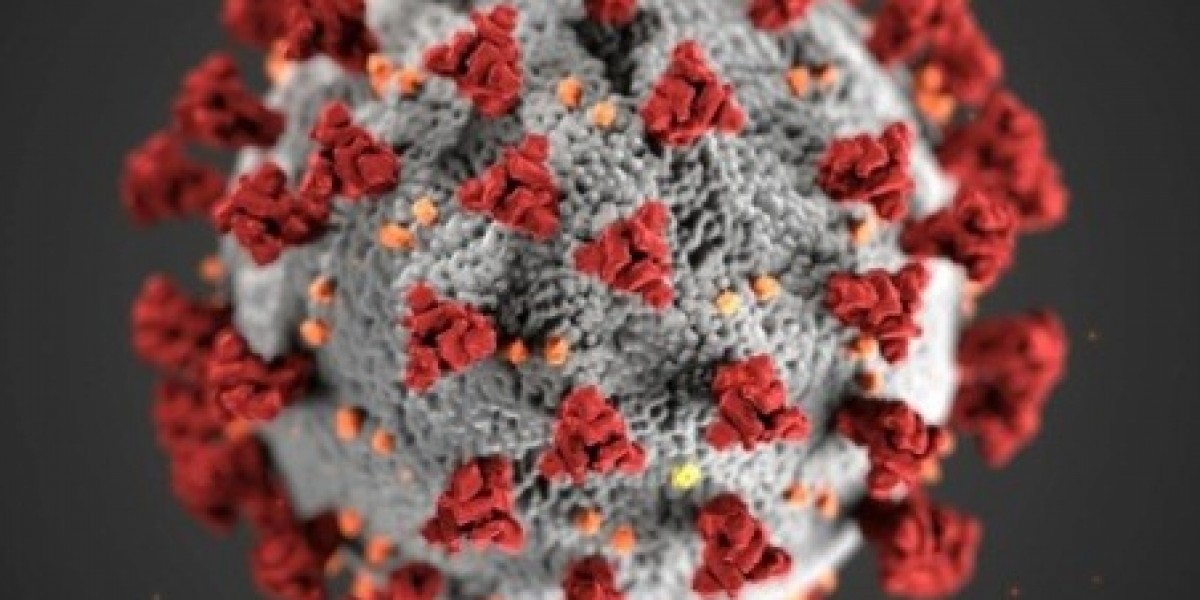Eating for Your Genes: How Nutrigenomics Testing Is Redefining Personalized Nutrition in 2025
Imagine a world where your diet isn’t guided by the latest fad or influencer trend, but by the unique language of your own DNA. In 2025, that world isn’t science fiction—it’s becoming a personalized reality, thanks to nutrigenomics testing.
As the fusion of nutrition and genomics, nutrigenomics aims to answer one big question: What does your DNA say you should eat? And more importantly, how can that knowledge improve your health, longevity, and overall quality of life?
What is Nutrigenomics Testing?
Nutrigenomics testing is the process of analyzing your genes to understand how your body responds to different nutrients, vitamins, and food components. Unlike standard blood tests or calorie-counting apps, this testing dives deeper—right into your genetic blueprint.
Using a simple cheek swab or saliva sample, these tests can reveal:
How efficiently you metabolize fats or carbohydrates
Your body’s ability to absorb essential vitamins like D or B12
Your genetic predisposition to food sensitivities
Whether you’re more prone to inflammation from certain foods
Your caffeine metabolism rate, and even how your body handles alcohol
It’s like unlocking the owner’s manual to your body’s ideal diet.
Why 2025 is a Turning Point
Five years ago, nutrigenomics felt futuristic and expensive—something only elite athletes or biohackers indulged in. Fast-forward to 2025, and the landscape has shifted dramatically.
Thanks to improved technology, reduced costs, and growing awareness about chronic lifestyle diseases, more people are turning to genetic nutrition to prevent illness, not just treat it.
Nutrigenomics testing is now available through telehealth platforms, smart wearables, and even pharmacies in major cities. What was once niche has moved to the mainstream.
Real People. Real Results.
Meet Priya, a 34-year-old marketing professional from Mumbai. For years, she struggled with bloating and constant fatigue despite eating what she believed was a “healthy” vegetarian diet. When a friend recommended nutrigenomics testing, she was skeptical—but curious.
Her test results were eye-opening: she lacked the gene variant needed to efficiently convert plant-based Omega-3s into their usable form. No matter how many flaxseeds or walnuts she consumed, her body wasn’t absorbing them effectively. A quick dietary shift to algae-based Omega-3 supplements made a huge difference. Within weeks, her energy improved and the bloating vanished.
Stories like Priya’s are becoming increasingly common.
From Trend to Tool: Beyond Buzzwords
It’s tempting to dismiss nutrigenomics as just another wellness trend. But in reality, it’s a powerful tool for preventive healthcare.
Doctors are beginning to incorporate gene-based nutrition into chronic disease management strategies for diabetes, hypertension, obesity, and even mental health conditions like depression and anxiety.
For instance, people with a variation in the MTHFR gene may struggle with folate metabolism. Knowing this early allows for smarter supplementation and reduced disease risk over time.
Likewise, individuals with the APOE4 gene variant, linked to higher Alzheimer’s risk, may benefit from specific dietary fats and antioxidants to slow cognitive decline.
These are not general guidelines—they’re your personalized instructions.
But Is It for Everyone?
Let’s be real—nutrigenomics isn’t a magic pill. It won’t cancel out poor lifestyle choices or replace the basics: whole foods, physical activity, and sleep.
And while the science is promising, it’s still evolving. Some genetic links are stronger than others, and context matters. Your genes are important, but so are your environment, stress levels, and microbiome.
However, if you’re someone who’s already doing “all the right things” but not seeing results, a nutrigenomics test might provide missing insights.
It’s not about restriction—it’s about optimization.
What to Expect From a Nutrigenomics Test in 2025
Accessibility: Home testing kits are now affordable and easy to use
AI-Powered Reports: Personalized nutrition plans generated using advanced algorithms
Holistic Recommendations: Insights that include not just food, but exercise, sleep, and supplements
Follow-Up Support: Access to dietitians trained in genetic counseling
And perhaps most importantly, the data belongs to you. You decide how and with whom to share it.
Browse More Reports:
Lumbar Puncture Trays And Needle
Laboratory Plasticware & Glassware
Laboratory Products Services Outsourcing
Eating for Your Genes: How Nutrigenomics Testing Is Redefining Personalized Nutrition in 2025
Imagine a world where your diet isn’t guided by the latest fad or influencer trend, but by the unique language of your own DNA. In 2025, that world isn’t science fiction—it’s becoming a personalized reality, thanks to nutrigenomics testing.
As the fusion of nutrition and genomics, nutrigenomics aims to answer one big question: What does your DNA say you should eat? And more importantly, how can that knowledge improve your health, longevity, and overall quality of life?
What is Nutrigenomics Testing?
Nutrigenomics testing is the process of analyzing your genes to understand how your body responds to different nutrients, vitamins, and food components. Unlike standard blood tests or calorie-counting apps, this testing dives deeper—right into your genetic blueprint.
Using a simple cheek swab or saliva sample, these tests can reveal:
How efficiently you metabolize fats or carbohydrates
Your body’s ability to absorb essential vitamins like D or B12
Your genetic predisposition to food sensitivities
Whether you’re more prone to inflammation from certain foods
Your caffeine metabolism rate, and even how your body handles alcohol
It’s like unlocking the owner’s manual to your body’s ideal diet.
Why 2025 is a Turning Point
Five years ago, nutrigenomics felt futuristic and expensive—something only elite athletes or biohackers indulged in. Fast-forward to 2025, and the landscape has shifted dramatically.
Thanks to improved technology, reduced costs, and growing awareness about chronic lifestyle diseases, more people are turning to genetic nutrition to prevent illness, not just treat it.
Nutrigenomics testing is now available through telehealth platforms, smart wearables, and even pharmacies in major cities. What was once niche has moved to the mainstream.
Real People. Real Results.
Meet Priya, a 34-year-old marketing professional from Mumbai. For years, she struggled with bloating and constant fatigue despite eating what she believed was a “healthy” vegetarian diet. When a friend recommended nutrigenomics testing, she was skeptical—but curious.
Her test results were eye-opening: she lacked the gene variant needed to efficiently convert plant-based Omega-3s into their usable form. No matter how many flaxseeds or walnuts she consumed, her body wasn’t absorbing them effectively. A quick dietary shift to algae-based Omega-3 supplements made a huge difference. Within weeks, her energy improved and the bloating vanished.
Stories like Priya’s are becoming increasingly common.
From Trend to Tool: Beyond Buzzwords
It’s tempting to dismiss nutrigenomics as just another wellness trend. But in reality, it’s a powerful tool for preventive healthcare.
Doctors are beginning to incorporate gene-based nutrition into chronic disease management strategies for diabetes, hypertension, obesity, and even mental health conditions like depression and anxiety.
For instance, people with a variation in the MTHFR gene may struggle with folate metabolism. Knowing this early allows for smarter supplementation and reduced disease risk over time.
Likewise, individuals with the APOE4 gene variant, linked to higher Alzheimer’s risk, may benefit from specific dietary fats and antioxidants to slow cognitive decline.
These are not general guidelines—they’re your personalized instructions.
But Is It for Everyone?
Let’s be real—nutrigenomics isn’t a magic pill. It won’t cancel out poor lifestyle choices or replace the basics: whole foods, physical activity, and sleep.
And while the science is promising, it’s still evolving. Some genetic links are stronger than others, and context matters. Your genes are important, but so are your environment, stress levels, and microbiome.
However, if you’re someone who’s already doing “all the right things” but not seeing results, a nutrigenomics test might provide missing insights.
It’s not about restriction—it’s about optimization.
What to Expect From a Nutrigenomics Test in 2025
Accessibility: Home testing kits are now affordable and easy to use
AI-Powered Reports: Personalized nutrition plans generated using advanced algorithms
Holistic Recommendations: Insights that include not just food, but exercise, sleep, and supplements
Follow-Up Support: Access to dietitians trained in genetic counseling
And perhaps most importantly, the data belongs to you. You decide how and with whom to share it.
Browse More Reports:
Lumbar Puncture Trays And Needle








